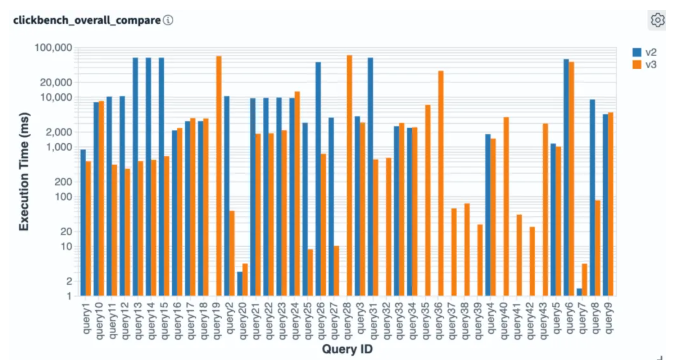OpenSearch 3.2 version is now officially released, bringing many highly anticipated new features aimed at improving search and observability, especially with greater advantages in generative AI application scenarios. This update continues the innovation of the 3.x series, providing users with a more efficient search experience.

In terms of search functionality, OpenSearch 3.2 has made significant performance and scalability improvements. In particular, the upgrade of the approximate framework supports the search_after query, greatly improving performance bottlenecks. This update ensures that when performing ASC and DESC sorting, the optimized BKD traversal can be effectively utilized, thereby enhancing the query efficiency of time-series and numerical data. Benchmark tests show that latency has dropped significantly, which brings faster response speeds for real-time dashboards and deep pagination applications.
Additionally, OpenSearch 3.2 introduces the skip_list feature, which helps the query engine efficiently skip irrelevant document ranges, thus improving query performance. At the same time, star-tree related aggregation queries have been enhanced, supporting aggregation based on IP fields and adding relevant statistical metrics.

In terms of vector databases and generative AI, version 3.2 provides more GPU support and improved vector search quality. New vector types such as FP16, byte, and binary have been added, reducing memory usage and improving resource utilization. Additionally, by introducing asymmetric distance calculation and random rotation techniques, search quality has been significantly improved, especially showing remarkable performance in application scenarios requiring high precision.
In terms of observability and log analysis, OpenSearch 3.2 has also been optimized. The Trace Analytics plugin now supports OpenTelemetry, enhancing the ability to analyze traces, making it easier for users to integrate with existing toolchains. At the same time, the update to the Piped Processing Language (PPL) brings higher query flexibility, further improving the performance and accuracy of complex queries.
The improvements in multiple aspects of OpenSearch 3.2 not only enhance the user's search experience but also provide strong support for a wide range of AI applications, demonstrating its great potential in modern data processing and analysis fields.
Key Points:
🌟 Added search_after query to improve the performance of time-series and numerical queries.
⚙️ Expanded GPU support, with multiple new vector types that reduce memory usage and improve efficiency.
📊 Trace Analytics plugin supports OpenTelemetry, enhancing observability and analytical capabilities.










